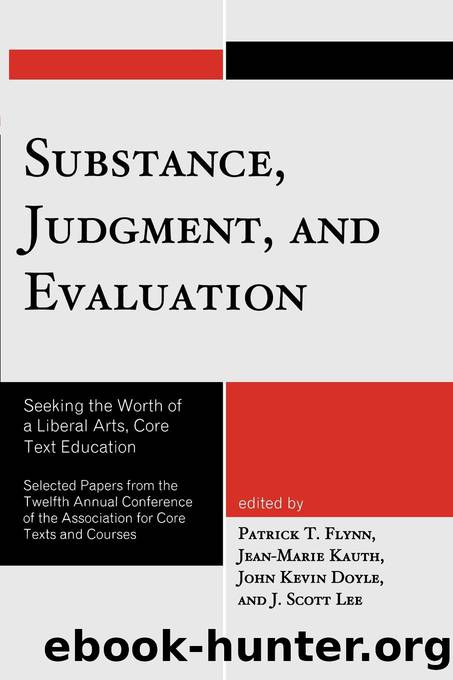Substance, Judgment, and Evaluation by unknow

Author:unknow
Language: eng
Format: epub
Publisher: University Press of America, Incorporated
Published: 2010-08-15T00:00:00+00:00
Notes
1. Nietzscheâs On the Genealogy of Morality also uses historical narrative to criticize particular elements of the present â in this case, moral values. Nietzsche criticizes certain contemporary moral values (especially prevalent in Christianity and Buddhism, among other religious traditions), such as humility, meekness, nonviolence, deprecation of the senses and the body, and devaluing of present existence and reality in favor of something beyond it. He argues that such values, though often unquestionably considered as âgood,â do not have an absolute, eternal nature as such; rather, by giving a history of how they came to be regarded positively, Nietzsche argues that they have their origins in human choices and practices, and could be altered thereby as well. Further, according to Nietzsche, these moral values should actually be devalued, as they are not only unnecessary but also profoundly harmful, causing misery from which we can and should escape. Nietzsche suggests that such moral values are subject to a self-overcoming (Third Essay, Section 27), and the text can serve as a kind of call to readers to themselves engage in this revaluation of values.
Download
This site does not store any files on its server. We only index and link to content provided by other sites. Please contact the content providers to delete copyright contents if any and email us, we'll remove relevant links or contents immediately.
| Administration & Medicine Economics | Allied Health Professions |
| Basic Sciences | Dentistry |
| History | Medical Informatics |
| Medicine | Nursing |
| Pharmacology | Psychology |
| Research | Veterinary Medicine |
Periodization Training for Sports by Tudor Bompa(8273)
Why We Sleep: Unlocking the Power of Sleep and Dreams by Matthew Walker(6725)
Paper Towns by Green John(5191)
The Immortal Life of Henrietta Lacks by Rebecca Skloot(4588)
The Sports Rules Book by Human Kinetics(4388)
Dynamic Alignment Through Imagery by Eric Franklin(4217)
ACSM's Complete Guide to Fitness & Health by ACSM(4060)
Kaplan MCAT Organic Chemistry Review: Created for MCAT 2015 (Kaplan Test Prep) by Kaplan(4013)
Livewired by David Eagleman(3775)
Introduction to Kinesiology by Shirl J. Hoffman(3773)
The Death of the Heart by Elizabeth Bowen(3622)
The River of Consciousness by Oliver Sacks(3604)
Alchemy and Alchemists by C. J. S. Thompson(3522)
Bad Pharma by Ben Goldacre(3428)
Descartes' Error by Antonio Damasio(3279)
The Emperor of All Maladies: A Biography of Cancer by Siddhartha Mukherjee(3163)
The Gene: An Intimate History by Siddhartha Mukherjee(3098)
The Fate of Rome: Climate, Disease, and the End of an Empire (The Princeton History of the Ancient World) by Kyle Harper(3067)
Kaplan MCAT Behavioral Sciences Review: Created for MCAT 2015 (Kaplan Test Prep) by Kaplan(2986)
